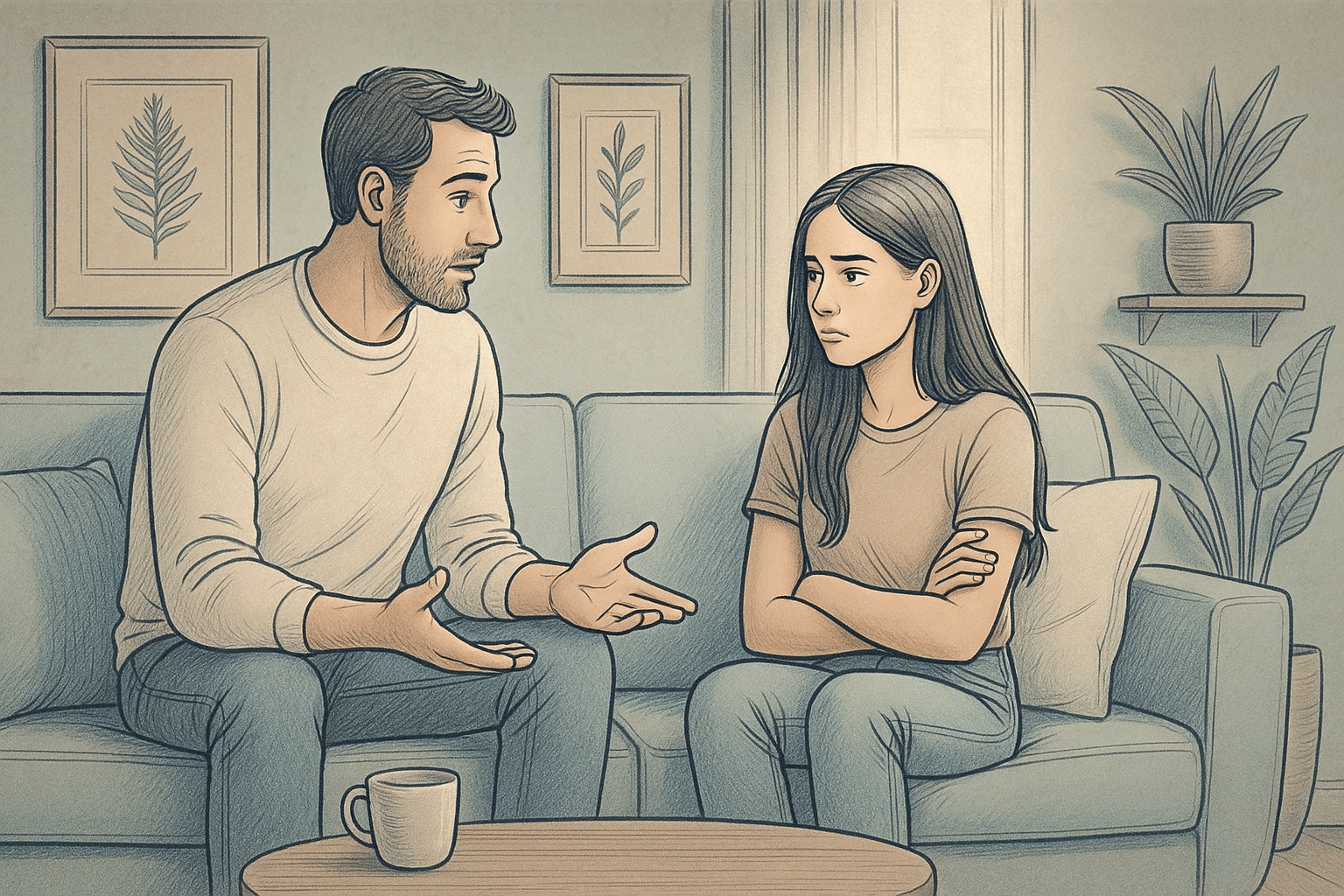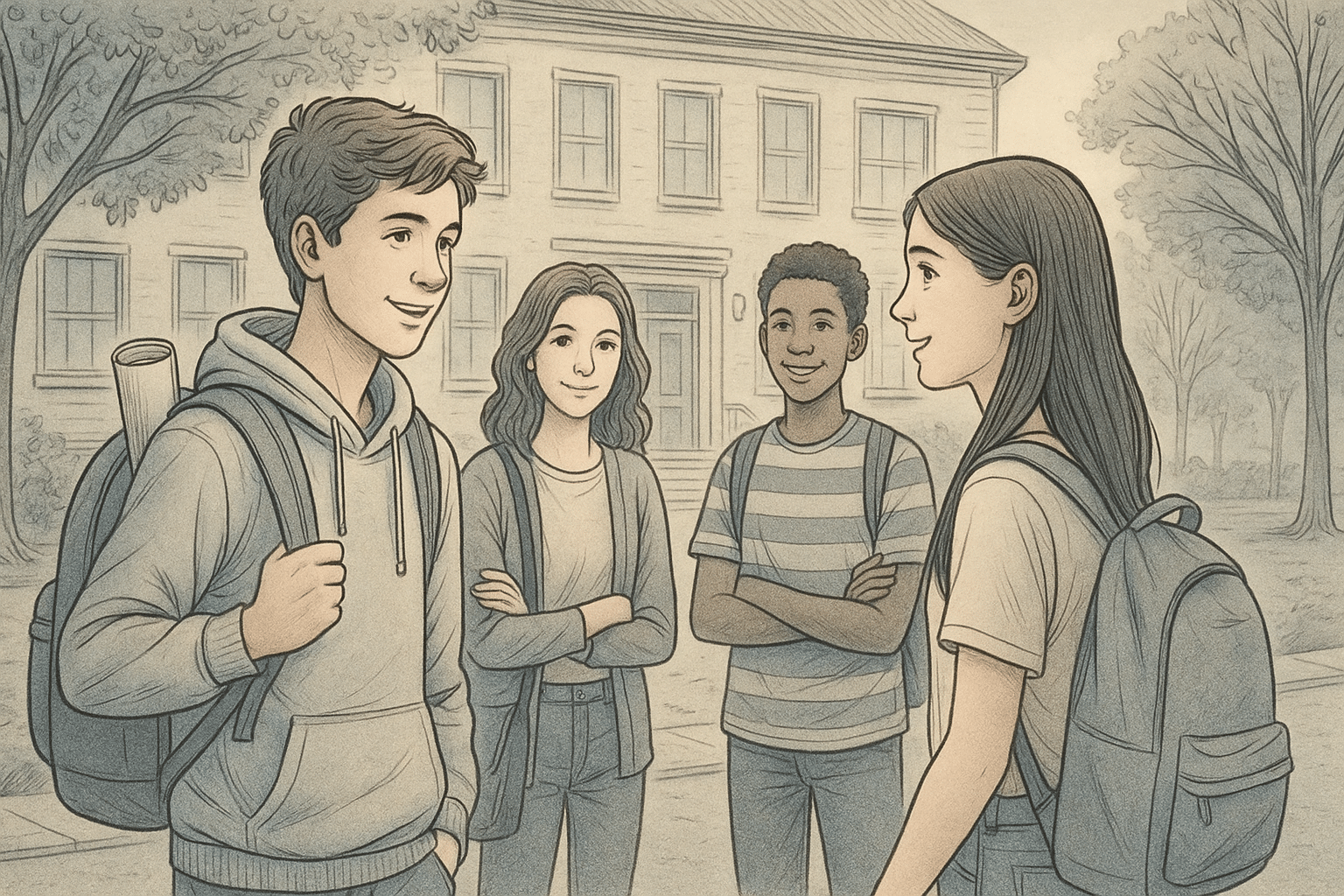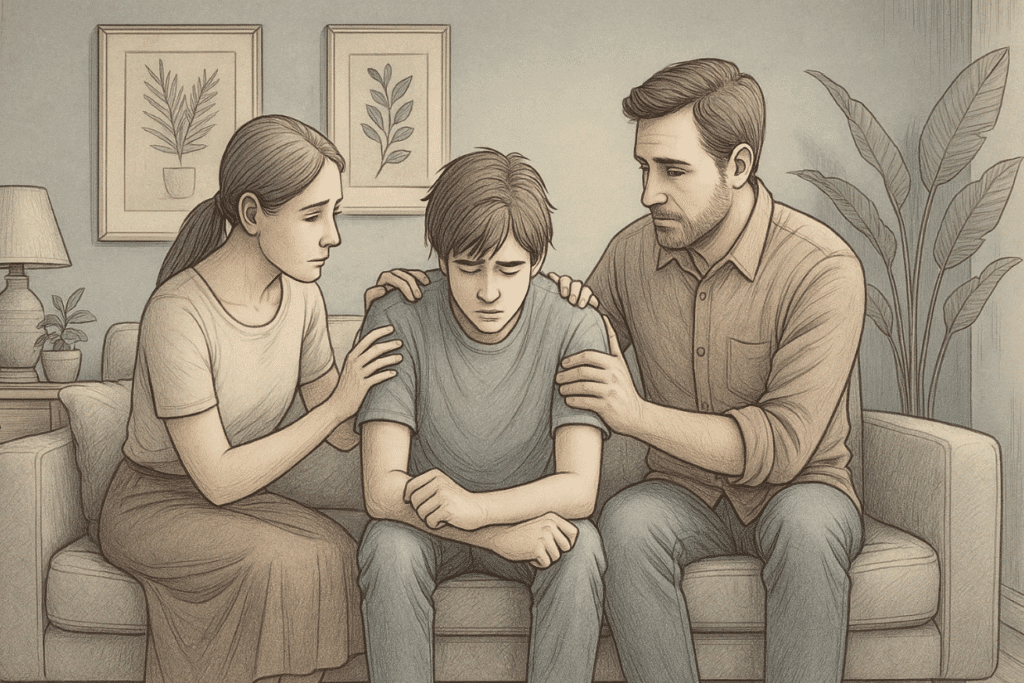Key Takeaways
- Creating a safe, judgment-free environment for communication is essential when helping a teen with depression.
- Professional help should be sought when depression symptoms persist for more than two weeks or interfere with daily functioning.
- Establishing consistent routines and healthy habits can significantly improve a teen’s mental health outcomes.
- Teaching teens healthy coping mechanisms helps them manage depressive symptoms independently.
- Mission Prep Healthcare offers comprehensive treatment for teen depression, providing 24/7 supervision, intensive therapy options, personalized care plans, and family support in a safe, structured environment designed for lasting recovery.
The Reality of Teen Depression: What Every Parent Should Know
Teen depression is more than mood swings or typical adolescent angst. It’s a serious mental health condition that impacts how your teenager thinks, feels, and functions in their daily life.
Depression can affect their academic performance, social relationships, and even their physical health. Understanding that depression is a medical condition, not a choice or character flaw, is essential for providing appropriate support.
Warning Signs That Shouldn’t Be Ignored
Identifying depression early can lead to better outcomes. Watch for persistent changes in your teen’s behavior and mood that last for two weeks or longer. Some symptoms to watch out for include:
- Persistent sadness, emptiness, or irritability
- Withdrawal from friends and activities they once enjoyed
- Changes in sleeping patterns (sleeping too much or insomnia)
- Noticeable changes in appetite or weight
- Difficulty concentrating or making decisions
- Expressions of hopelessness or worthlessness
- Unexplained physical complaints like headaches or stomachaches
- Talk of death or suicide
If you notice these symptoms in your teen, seek professional help. Early intervention can significantly improve outcomes. Teens who receive appropriate treatment for depression have better academic performance, healthier relationships, and reduce risk of suicide compared to those whose depression goes untreated.
Mission Prep Healthcare specializes in mental health treatment for teens aged 12-17, offering residential and outpatient programs for anxiety, depression, trauma, and mood disorders. Our therapies include CBT, DBT, EMDR, and TMS, tailored to each adolescent’s needs.
With a structured, supportive environment, we integrate academic support and family involvement to promote lasting recovery. Our goal is to help teens build resilience and regain confidence in their future.
5 Ways Parents Can Help Teens with Depression
1. Create a Safe Space for Open Communication
Creating an environment where your teen feels safe to express their thoughts and feelings without judgment is foundational to helping them through depression.
This safe space isn’t just about the physical environment, it is establishing emotional safety through your responses, body language, and consistent support.
How to Actually Hear What Your Teen Is Saying

Knowing how to communicate is perhaps the most powerful tool in your parental toolkit when supporting a depressed teen.
When talking to your teen, put away distractions, make eye contact, and give your full attention when your teen is speaking.
Resist the urge to immediately offer solutions or minimize their feelings with phrases like “it’s just a phase” or “you’ll get over it.” Instead, validate their emotions with responses like, “That sounds really difficult” or “I can see why you’d feel that way.”
The simple act of truly listening, without planning your response or trying to fix the problem can be incredibly healing for a teen who feels misunderstood or alone in their depression.
What to Do When Your Teen Won’t Talk
Many teens initially resist discussing their feelings, especially with parents. If your teen isn’t ready to talk, don’t force the issue. Instead, continue to express your concern and availability without pressure.
Simple statements like “I’m here whenever you’re ready” can keep the door open without creating additional stress.
2. Get Professional Help When Needed
While parental support is crucial, depression often requires professional intervention.
Professional help doesn’t mean you’ve failed as a parent. In fact, recognizing when expert support is needed is one of the most important ways you can help your child.
When to Reach Out to a Mental Health Professional
It’s time to seek professional help when depression symptoms persist for more than two weeks, interfere with daily functioning, or include any thoughts of self-harm or suicide.
Don’t wait for a crisis to develop. Early intervention can prevent symptoms from worsening and help your teen develop coping strategies before depression significantly impacts their life.
How to Find the Right Therapist for Your Teen
Finding the right therapist requires considering both practical factors and personal fit. Start by asking your pediatrician, school counselor, or insurance provider for referrals to therapists who specialize in adolescent depression.
The therapeutic relationship is crucial for effective treatment, so involve your teen in the selection process when possible. Many therapists offer free initial consultations, which can help determine if there’s a good connection.
Don’t be discouraged if the first therapist isn’t a perfect match—finding the right fit sometimes takes trial and error.
3. Build a Supportive Home Environment
Your home environment can either alleviate or exacerbate your teen’s depression symptoms.
Creating a space that promotes emotional well-being involves more than just physical comfort, it’s about establishing an atmosphere of consistency, understanding, and positive reinforcement. Small environmental changes can have a significant impact on your teen’s mood and resilience.
Creating Routines That Support Mental Health
Consistent daily routines provide a sense of stability that can be particularly beneficial for teens with depression. Establish regular times for waking, sleeping, meals, homework, and relaxation.
These predictable patterns help regulate your teen’s biological clock, which often becomes disrupted during depression. Be mindful not to overschedule your teen. While structure is important, too many commitments can create additional stress.
Additionally, involve your teen in creating these routines when possible, as having input gives them a sense of control that depression often strips away.
The Role of Nutrition and Exercise in Fighting Depression

What your teen eats and how they exercise their body can significantly impact their mental health.
Regular physical activity reduces depression symptoms, partly by triggering the release of endorphins and other mood-enhancing brain chemicals.
Nutrition plays an equally important role in managing depression. Diets rich in fruits, vegetables, whole grains, and omega-3 fatty acids support brain health. Rather than implementing strict dietary rules, gradually introduce more nutrient-dense foods and involve your teen in meal planning and preparation when possible.
4. Help Your Teen Develop Healthy Coping Skills
Equipping your teen with effective coping strategies empowers them to manage their depression symptoms independently.
These skills help during current episodes and protect against future mental health challenges. The goal is to help your teen build an emotional toolbox they can draw from throughout life.
Teaching Emotional Regulation Techniques
Emotional regulation, the ability to manage intense feelings without becoming overwhelmed, is often compromised during depression.
Simple techniques like deep breathing, progressive muscle relaxation, and the 5-4-3-2-1 grounding exercise can help your teen regain control during emotional flooding.
Journaling provides another powerful outlet, allowing teens to process complex feelings without judgment.
Mindfulness Practices Teens Actually Enjoy
Mindfulness, the practice of present-moment awareness without judgment, has proven benefits for depression, but traditional meditation doesn’t appeal to every teen.
Fortunately, mindfulness can be incorporated in ways that feel relevant and engaging. Activities like mindful walking (focusing on physical sensations while walking), mindful music listening (paying close attention to instruments, lyrics, and emotions evoked), or even mindful eating can introduce the concept in accessible ways.
5. Strengthen Your Teen’s Support Network
While your role as a parent is crucial, your teen needs support from multiple sources to fully address depression.
A diverse support network provides different perspectives, reduces pressure on any single relationship, and helps teens feel less isolated in their struggles.
Connecting With Peers Who Lift Them Up

Positive peer relationships are powerful protective factors against depression.
Help your teen identify and strengthen connections with friends who demonstrate empathy, acceptance, and healthy behaviors.
These might be long-term friendships that have weathered changes or newer connections formed around shared interests or values.
Without being intrusive, create opportunities for these positive peer interactions by welcoming friends into your home, providing transportation to shared activities, or facilitating participation in structured groups like sports teams, clubs, or faith communities.
Building Relationships With Trusted Adults
Non-parent adults who take genuine interest in your teen’s well-being can provide crucial support, especially during times when parent-teen communication becomes strained.
These might include extended family members, coaches, teachers, counselors, neighbors, or activity leaders who have established rapport with your teen.
Such relationships give teens additional perspectives and create safe spaces for processing thoughts and feelings they might be uncomfortable sharing with parents.
Mission Prep: Supporting Families Through Teen Depression Treatment
At Mission Prep, we understand that teen depression impacts the entire family, which is why our comprehensive residential treatment program works closely with parents to provide both teens and families with the tools needed for lasting recovery.
Our personalized approach goes beyond traditional therapy by addressing the complete picture of your teen’s mental health. Through thorough assessments, including trauma evaluation, we create individualized treatment plans that incorporate healthy habit formation, early light exposure, gentle movement, and evidence-based therapeutic approaches.

Our modern, welcoming facilities provide the safe, structured environment teens need to develop coping strategies while our 24/7 supervision ensures their safety during this critical healing process.
What sets Mission Prep Healthcare apart is our commitment to family involvement throughout treatment. Our intensive therapy options, combined with peer support and personalized care plans, create the foundation for sustainable healing that extends far beyond residential treatment, empowering families with the knowledge and skills needed for long-term success.
Frequently Asked Questions
Will my teen’s depression ever go away completely?
Depression is highly treatable, with approximately 60–80% of teens responding well to treatment combining therapy and medication when indicated. Many teens experience complete remission of symptoms with appropriate treatment, while others may have recurring episodes that become more manageable with effective coping strategies and ongoing support.
Should I monitor my depressed teen’s social media accounts?
This requires balancing safety concerns with your teen’s need for privacy and autonomy. For younger teens or those at high risk for self-harm, closer monitoring may be appropriate with their knowledge. Focus on open conversations about healthy digital habits and the relationship between social media use and mental health.
How do I know if my teen is having suicidal thoughts?
Warning signs include talking about death or suicide, expressing hopelessness, saying goodbye to friends, giving away prized possessions, or sudden calmness after distress. Ask directly about suicidal thoughts – this doesn’t increase risk and may open important conversations. If concerned, seek immediate professional help.
Can my teen’s depression be treated without medication?
For mild to moderate depression, evidence-based psychotherapies like CBT or IPT are often effective without medication. For moderate to severe depression, particularly with significant functional impairment or suicidal thoughts, a combination of therapy and medication typically provides the best outcomes.
What makes Mission Prep different for treating teen depression?
Mission Prep provides comprehensive residential treatment with personalized care plans, thorough assessments including trauma evaluation, and a focus on building healthy habits through early light exposure, fresh air, and gentle movement. Our program includes 24/7 supervision, intensive therapy options, peer support, and extensive family involvement to ensure lasting recovery.





















